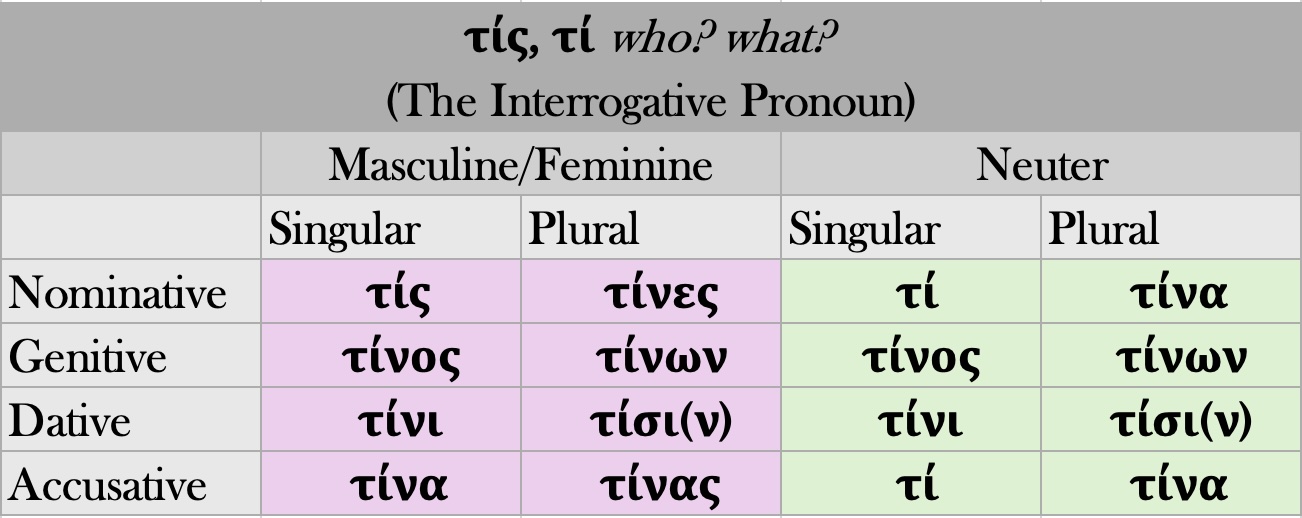12.13 The pronoun τις, τι, when accented as follows, serves not as an indefinite pronoun, but an interrogative pronoun, meaning who? what?
Note that there are two changes that distinguish the interrogative pronoun from the indefinite pronoun:
The interrogative pronoun ALWAYS has an ACUTE ACCENT (S 334, G 217). If the form has two syllables, the accent is on the penult, e.g. τίνος, τίνι… Since the penult of a two syllable enclitic can never receive the accent, encountering a form such as τίνος indicates that it must be an interrogative pronoun.
If the accent is on a monosyllabic form, the acute NEVER changes to a grave, even if another word follows. Note the following examples:
- τί οἱ ἄρχοντες διδόασιν;
- What are the rulers giving?
- τίς ταῦτα δίδωσιν;
- Who is giving these (things)?
The interrogative pronoun is NOT postpositive. In fact, it is often the first word of a sentence or clause that asks the question Who…? or What…?
Consider the accents and position of τις, τι in the following sentences. Note also that each sentence ends in a Greek question mark.
- τίς δίδωσιν τὸ ὕδωρ τοῖς παισίν;
- Who is giving water to the children?
- τίσιν οἱ ἄρχοντες διδόασι τὸ ὕδωρ;
- To whom are the rulers giving water?
12.16 NOTE: The neuter accusative singular τί is sometimes used to ask the question “why?” instead of “what?” Context helps determine which meaning is intended. For example, “why?” is the likely meaning if another noun is the direct object (accusative) of the verb.
- τί οἱ ἄρχοντες διδόασι τοῖς παισίν;
- What are the rulers giving to the children?
- τί οἱ ἄρχοντες διδόασι τὸ ὕδωρ τοῖς παισίν;
- Why are the rulers giving water to the children?
12.17 When τις, τι has an acute accent, and modifies a noun with which it agrees in gender, number, and case, it serves as an INTERROGATIVE ADJECTIVE. Even if used as an adjective, note that the acute still never changes to a grave.
- τίς ἀνὴρ δίδωσι τὸ ὕδωρ τοῖς παισίν;
- What man is giving water to the children?
- τίνες ἄρχοντες διδόασιν ἐκεῖνα τοῖς παισίν;
- Which rulers are giving those things to the children?


